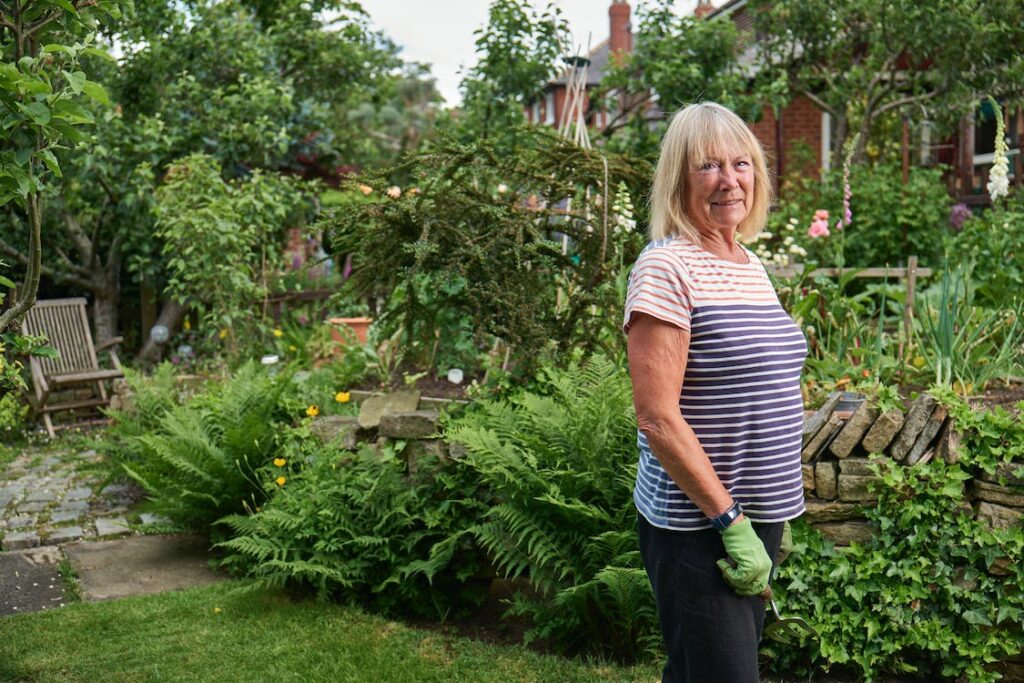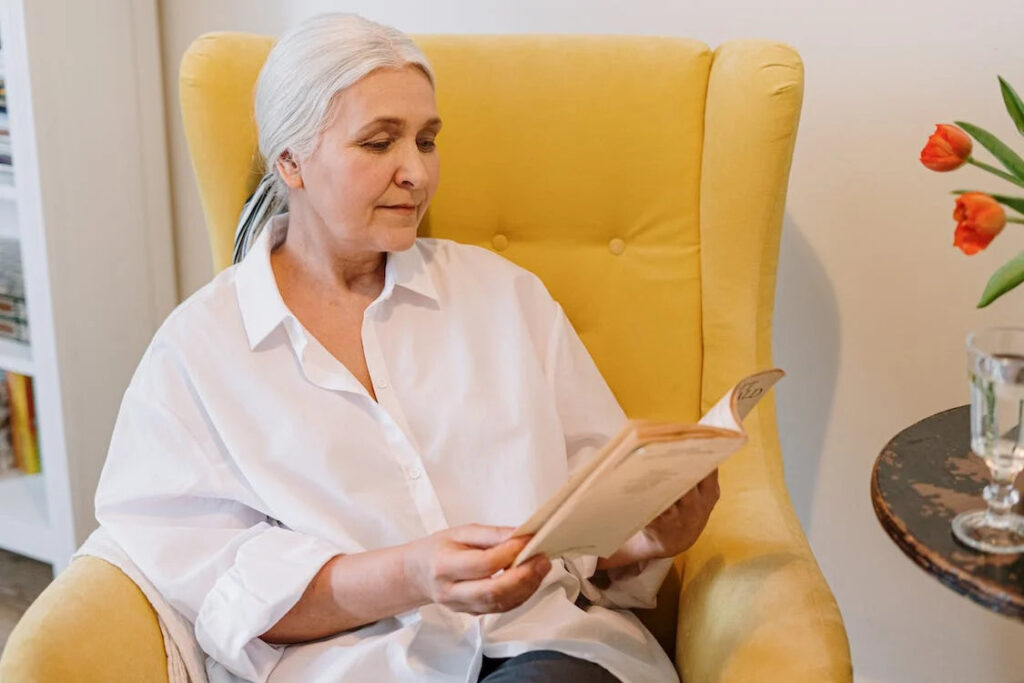Understanding Cognitive Stimulation and Memory Care
The human brain is an intricate web of neural pathways that are constantly evolving and adapting. Cognitive Stimulation however, some of these pathways can deteriorate as we age, especially in memory care patients.
Memory care patients, particularly those with Alzheimer’s and other forms of dementia, face unique challenges. Cognitive decline affects memory and the ability to perform daily tasks and maintain emotional balance.
Colonial Oaks Senior Living at Leawood, KS is committed to providing a comprehensive approach to care. We believe in the potential of every individual and emphasize the importance of cognitive stimulation to enhance the quality of life for our residents.
Why Cognitive Stimulation Activities are Crucial
Engaging in cognitive activities helps stimulate the brain, just as exercise strengthens the body. When we challenge our minds, we promote neural growth and connectivity.
Research indicates that memory care patients who engage in cognitive activities regularly may experience slower cognitive decline than those who don’t.
Beyond the direct brain benefits, these activities can boost self-esteem, improve mood, and foster a sense of purpose and belonging among patients.
Recommended Activities for Cognitive Stimulation Enhancement
Music and Singing
Music has a unique power to awaken memories and stimulate emotions. For many, familiar tunes from their past can spark joy and even memories long believed to be forgotten.
At Colonial Oaks, we often incorporate music sessions where residents can sing along, play instruments, or listen and enjoy. The rhythmic patterns and melodies in music stimulate various parts of the brain, leading to enhanced cognitive function.
Furthermore, research has shown that music can alleviate anxiety and depression, common issues memory care patients face.

Art and Craft Activities
Expressing oneself through art can be both therapeutic and cognitively stimulating. Painting, drawing, and crafting provide an outlet for creativity and emotion.
Engaging in these activities challenges the brain to make choices, coordinate hand-eye movements, and interpret visual information, thus stimulating cognitive functions.
At Colonial Oaks, our residents participate in group art sessions, promoting social interaction and team collaboration.
Puzzles and Games
Puzzles, board games, and card games offer memory care patients an excellent opportunity to challenge their cognitive abilities. Games like chess, checkers, and memory card games require strategic thinking and concentration.
Solving puzzles, such as jigsaw or crossword puzzles, engages various parts of the brain, enhancing spatial reasoning and language skills.
Our community ensures that there’s a wide variety of games available, catering to various skill levels and interests.

Physical Exercise and Movement
Physical activity isn’t just beneficial for the body; it’s crucial for brain health, too. Activities like walking, dancing, or simple stretching exercises can increase blood flow to the brain, nourishing it with essential nutrients and oxygen.
Moreover, rhythmic exercises like Tai Chi or gentle yoga also promote coordination, balance, and mindfulness – all essential for cognitive health.
At Colonial Oaks, we offer daily exercise sessions tailored to our residents’ capabilities, ensuring safety while promoting cognitive and physical well-being.
Gardening and Nature Activities
The act of gardening connects memory care patients with nature, offering therapeutic benefits. Planting, watering, and tending to plants require attention, planning, and motor skills.
Beyond the cognitive benefits, being in nature and nurturing life can provide a profound sense of satisfaction and purpose.
Our facility boasts beautifully maintained gardens, allowing residents to engage in gardening activities and enjoy the therapeutic benefits of nature.

The Brain’s Plasticity
Often, there’s a misconception that the brain’s abilities are set in stone, especially as one grows older. However, the concept of neuroplasticity disproves this. Neuroplasticity refers to the brain’s ability to reorganize and form new neural connections throughout life.
When memory care patients engage in cognitive activities, they are essentially ‘exercising’ their brain, promoting this reorganization and strengthening neural pathways. Thus, fostering an environment that supports these activities is vital.
At Colonial Oaks Senior Living at Leawood, KS, we’ve embraced this understanding, ensuring our residents always have an array of activities to keep their brains agile.
Emotional Well-being and Cognitive Health
It’s essential to realize that cognitive health isn’t solely about mental exercises. Emotions play a significant role. When memory care patients are content, relaxed, and free from anxiety, they are more likely to engage actively in cognitive activities.
Activities that evoke positive emotions, laughter, or relaxation, such as watching a heartwarming movie or participating in laughter therapy, have been shown to have cognitive benefits.
At Colonial Oaks, our team ensures a blend of activities that cater to both the emotional and cognitive well-being of our residents.
The Role of Social Interaction
Humans are inherently social creatures. Social interactions can stimulate the brain in ways that solitary activities might not. Conversations challenge our thinking, memory recall, and ability to process information.
Group activities, be it group exercises, singing sessions, or art classes, offer dual benefits. They enhance cognitive stimulation abilities while also fulfilling the human need for connection and camaraderie.
Our community at Colonial Oaks is vibrant and interactive, ensuring that no resident feels isolated and everyone has an opportunity to engage socially.
Nutritional Considerations
The food we consume plays a role in cognitive health. Diets rich in antioxidants, healthy fats, vitamins, and minerals provide energy and protection for the brain.
Omega-3 fatty acids, found in fish, flaxseeds, and walnuts, for instance, have been linked to reduced cognitive stimulation decline. Meanwhile, dark leafy greens and berries provide antioxidants that combat oxidative stress in the brain.
At Colonial Oaks, our dietary plans are crafted with these considerations in mind. We provide nutritious meals that not only satisfy the taste buds but also nourish the brain.
Continuous Learning and Growth
It’s never too late to learn something new. Encouraging memory care patients to take on new hobbies, learn a new skill, or even just explore a new topic can activate parts of the brain that might have been dormant.
Whether it’s a new craft technique, a dance step, or a historical fact, these moments of learning stimulate the brain and offer a sense of accomplishment.
We continually introduce new activities and topics to our residents, so ensuring that every day offers a chance to learn and grow.

How We Can Help
The journey of caring for memory care patients is complex. It requires a blend of compassion, understanding, and dedication to enhancing their cognitive, emotional, and physical well-being.
We hope this guide has offered insights and practical recommendations. Remember, every individual is unique, and their care approach should be tailored to their needs and preferences.
At Colonial Oaks Senior Living in Leawood, KS, we are dedicated to this holistic approach. So If you’d like to learn more or seek support, please don’t hesitate to reach out to our team at 913-685-4800.


